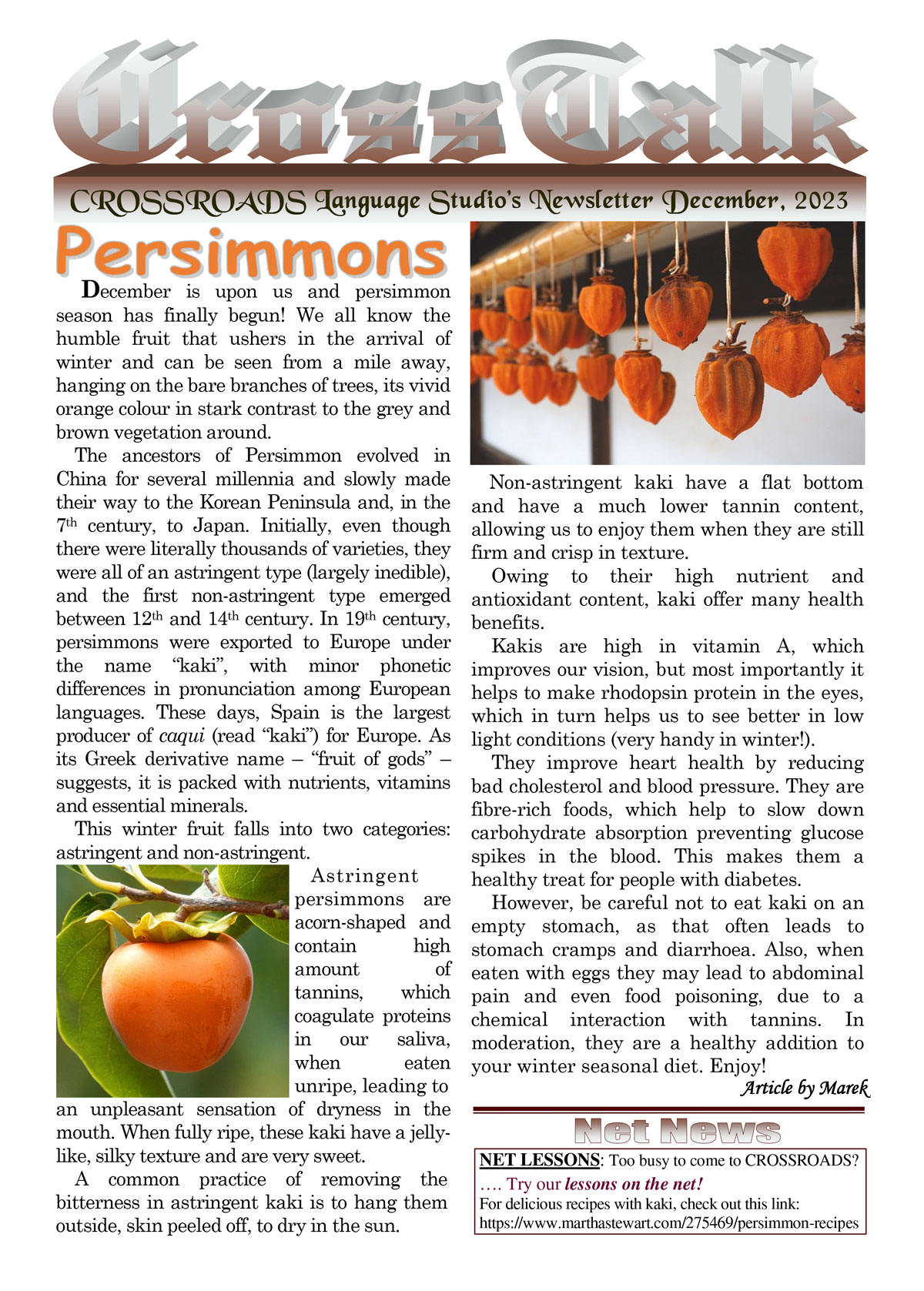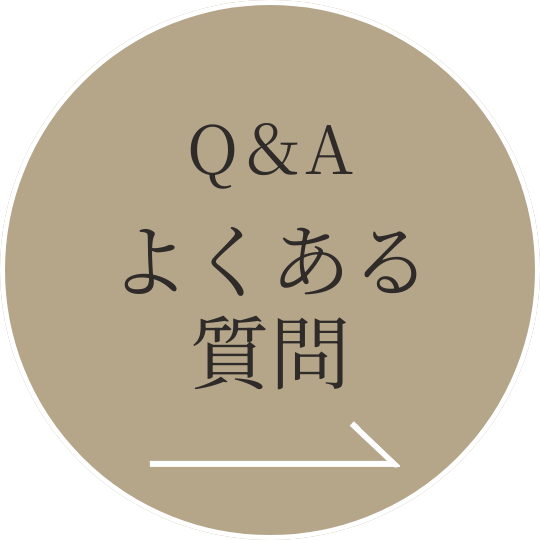CROSSROADS Language Studio’s Newsletter December, 2023 Persimmons

December is upon us and persimmon season has finally begun! We all know the humble fruit that ushers in the arrival of winter and can be seen from a mile away, hanging on the bare branches of trees, its vivid orange colour in stark contrast to the grey and brown vegetation around.
The ancestors of Persimmon evolved in China for several millennia and slowly made their way to the Korean Peninsula and, in the 7th century, to Japan. Initially, even though there were literally thousands of varieties, they were all of an astringent type (largely inedible), and the first non-astringent type emerged between 12th and 14th century. In 19th century, persimmons were exported to Europe under the name “kaki”, with minor phonetic differences in pronunciation among European languages. These days, Spain is the largest producer of caqui (read “kaki”) for Europe. As its Greek derivative name – “fruit of gods” – suggests, it is packed with nutrients, vitamins and essential minerals.
This winter fruit falls into two categories: astringent and non-astringent.
Astringent persimmons are acorn-shaped and contain high amount of tannins, which coagulate proteins in our saliva, when eaten unripe, leading to an unpleasant sensation of dryness in the mouth. When fully ripe, these kaki have a jelly-like, silky texture and are very sweet.
A common practice of removing the bitterness in astringent kaki is to hang them outside, skin peeled off, to dry in the sun.
Non-astringent kaki have a flat bottom and have a much lower tannin content, allowing us to enjoy them when they are still firm and crisp in texture.
Owing to their high nutrient and antioxidant content, kaki offer many health benefits.
Kakis are high in vitamin A, which improves our vision, but most importantly it helps to make rhodopsin protein in the eyes, which in turn helps us to see better in low light conditions (very handy in winter!).
They improve heart health by reducing bad cholesterol and blood pressure. They are fibre-rich foods, which help to slow down carbohydrate absorption preventing glucose spikes in the blood. This makes them a healthy treat for people with diabetes.
However, be careful not to eat kaki on an empty stomach, as that often leads to stomach cramps and diarrhoea. Also, when eaten with eggs they may lead to abdominal pain and even food poisoning, due to a chemical interaction with tannins. In moderation, they are a healthy addition to your winter seasonal diet. Enjoy!
CROSSROADSのNews letterをPDFでダウンロード
CROSSROADSのスタッフから、最新のトピックスやメッセージなどを毎月お届けしています。クロスワードパズルなどのコーナーもあります。






